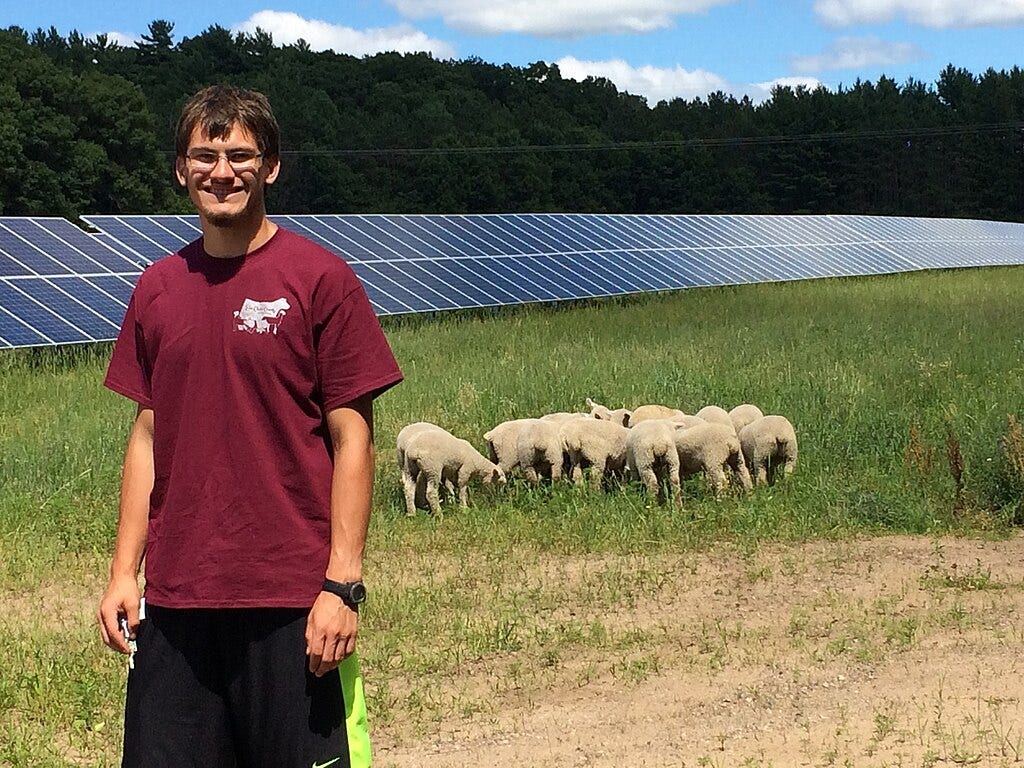Supporters of Senate Bill 188 Say Montana Solar Shares Act is About Freedom of Choice and Needs to Make it Out of Committee This Week
You can support SB 188, which allows for statewide Montana-made energy generation by and for Montanans, by contacting committee members
By Denise Rivette

Senate Bill 188, entitled “AN ACT ESTABLISHING SHARED SOLAR AND UTILITY REQUIREMENTS…,” and currently before the Montana Senate Energy, Technology and Federal Relations Committee would enable shared (community) solar arrays throughout the state and require investor-owned utility companies to connect those systems that meet the standard requirements to interconnect to their distribution systems. Electrical cooperatives throughout Montana are already allowed to integrate Shared Solar arrays into their distribution systems, and several are doing so successfully.
Shared solar offers an economic solution at a time when many Montanans are struggling with increases to cost of living, property taxes, and energy bills.
Nine of Montana’s Rural Electric Cooperatives already employ shared solar systems, benefitting individuals, businesses, tribes, schools, and industrial users.
~Montana Renewable Energy Association
Montana Renewable Energy Association explains, “Solar Shares is an energy project built to benefit multiple customers and address their electricity needs and choice of resource. Using a subscription model, individuals can purchase shares of a larger solar array. Larger projects enjoy a more affordable cost per unit compared to smaller solar projects. Subscribers receive a monthly bill credit from their utility for the electricity generated from their share of the project.”
Nationwide, this model is becoming more popular. However, a large portion of Montanans are locked out of this energy savings/resource choice opportunity. If passed, SB 188 will unlock those solar shares, providing cost savings and renewable energy opportunities for all Montanans on the grid.
As it stands now, the Northern Plains Resource Council explains that Montanans don’t have the freedom to choose the energy they want because the State is applying twentieth century regulations to twenty-first century technology. “Current state regulations prevent us from accessing low-cost energy and have more say in the generation resource that could help ease energy costs for Montanans all across the state. Shared Solar would provide a remedy for that. It would be available to everyone including businesses, homeowners, and renters. We all deserve the freedom to choose low-cost energy from a renewable carbon-free resource and enabling community solar in Montana makes that freedom possible!” If SB 188 passes, NorthWestern Energy and Montana Dakota Utilities customers could participate in Shared Solar projects whether they are homeowners, renters, ranchers, businesses, schools, non-profits, etc. Northern Plains Resource Council goes on to state, “Shared Solar is another tool to offset rising energy costs, making housing more affordable.”
According to the Montana Renewable Energy Association, Shared Solar, SB 188:
Enables versus mandates.
Unlocks more American-made electricity generation opportunities.
Stabilizes energy costs for Montana families.
Reduces transmission and distribution line losses when built closer to system
loads.
Meets customer demands.
Contributes to grid resilience.
Offers diversified revenue options for Montana farms and ranches.
Is market driven.
Does not obligate participation nor guarantee projects.
Kevin Owens, the former General Manager for Beartooth Electric Cooperative based in Carbon County, has over 46 years of experience in the utility business and is now a NorthWestern Energy customer with a solar panel system on the roof of his home in Red Lodge.
In his testimony before the Energy, Technology and Federal Relations Committee, Owens stated:
Utility customers throughout Montana currently have the ability to install net- metered solar systems on their individual homes and businesses. In doing so, considerations must include cost, tax credits, solar view shed, structural integrity, age of the roof, electrical panel capacity, size of the installation, continued operation and maintenance, etc. All these factors are critically important to a successful installation. I have benefited from such an installation for several years at my own home. Unfortunately, I am now planning to re-roof my home in the Spring which includes over $4,000 to remove and re-attach my solar panels.
These are significant challenges for an individual to undertake. Unfortunately, they will deter many customers from taking the step to procure their energy resource from the sun to lower their utility bills or make a socially conscious decision to be less reliant on carbon-based energy resources.
The concept of Shared Solar, virtual solar or community solar overcomes many of these challenges. It opens a unique opportunity for customers to scale their involvement in a shared solar installation through purchasing all of their annual energy requirements or incremental shares of the project output. Those shares are considered a fungible asset that can be transferred from residence to residence within the utility service area. This opens subscription to individual homeowners, rented businesses, home rentals, and apartments. Subscriptions can also be donated to other customers and non-profits.
Citizens backing this legislation believe it must pass out of committee this coming week and are asking those who support Montanans having the freedom to choose to participate in shared solar systems to call their senators and members of the committee to let them know your thoughts on the legislation.
Energy, Technology and Federal Relations Committee Contact Information
Daniel Zolnikov, Chair. 406-444-4800. Daniel.Zolnikov@legmt.gov
Gayle Lammers. 406-679-0020. Gayle.Lammers@legmt.gov
Christopher Pope. 406-581-8739. Christopher.Pope@legmt.gov
Kenneth Bogner. 406-916-9690. Kenneth.Bogner@legmt.gov
Mike Cuffe. 406-293-1247. Mike.Cuffe@legmt.gov
Janet Ellis. Janet.Ellis@legmt.gov
Wylie Galt. 406-220-0157. Wylie.Galt@legmt.gov
Derek Harvey. 406-490-5472. Derek.Harvey@legmt.gov
Denise Hayman. 406-579-1986. Denise.Hayman@legmt.gov
Gregg Hunter. 406-219-7590. Gregg.Hunter@legmt.gov
Emma Kerr-Carpenter. 406-894-0377. Emma.KC@legmt.gov
Matt Regier. 406-284-5639. Matt.Regier@legmt.gov
Barry Usher. 406-252-2888. Barry.Usher@legmt.gov
Contact information for all the legislators during this session can be found at https://www.legmt.gov/legislators/



